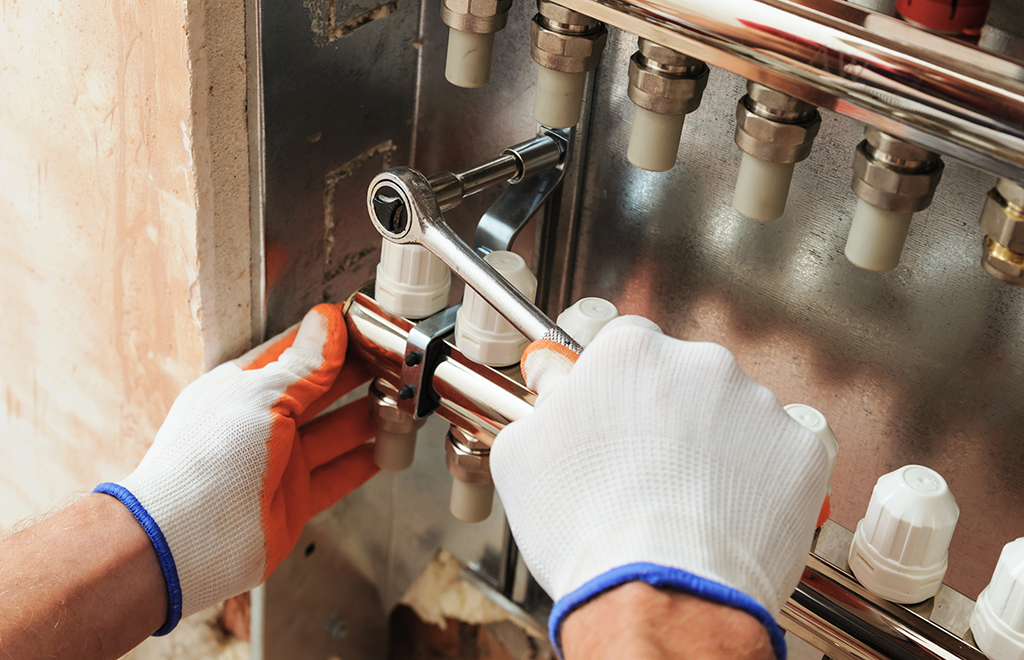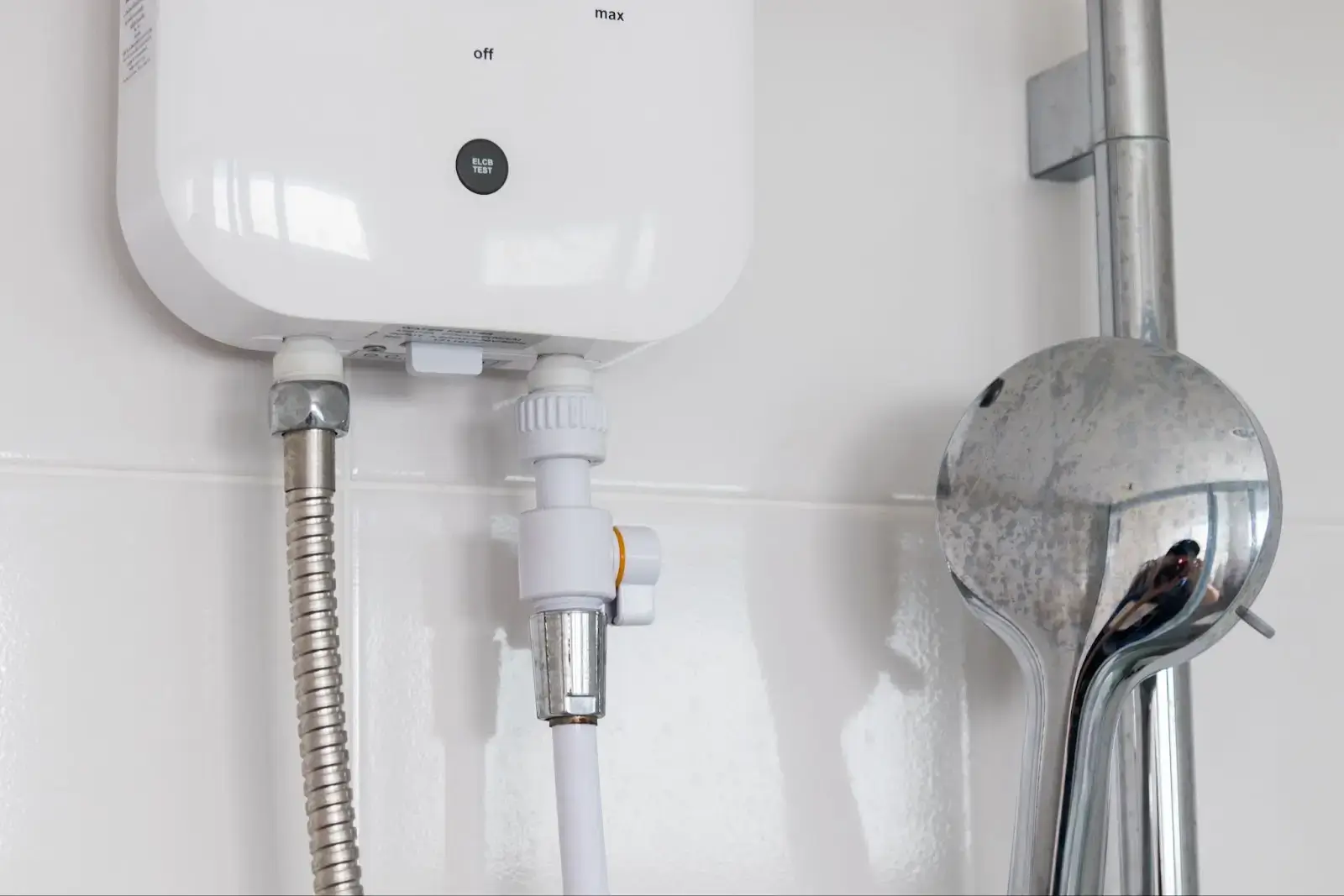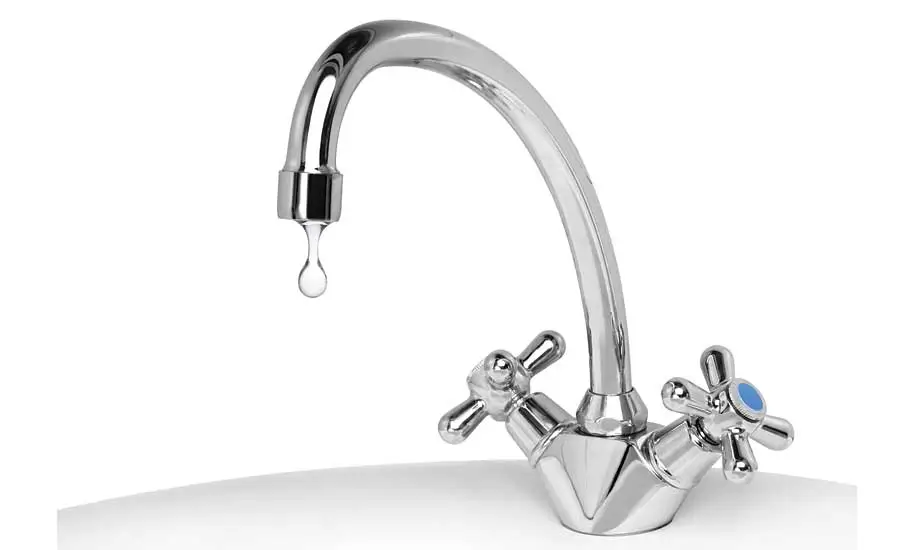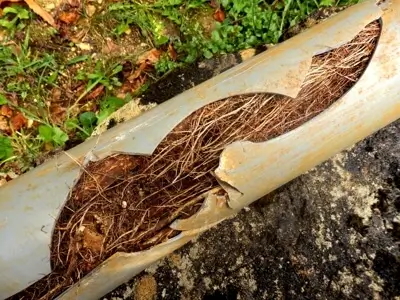Winter chills have you cranking up the furnace again. While your heating system keeps your home toasty, there's one small part that doesn't get much attention: the capacitor. This tiny cylinder, although small, plays a crucial role.
This capacitor helps get your furnace’s motor up and running by providing a jolt of energy. No capacitor means no heat! These components are built to last your furnace’s lifespan, but they can fail over time for various reasons, which can leave your furnace unable to start.
Here, we'll explain what a furnace capacitor is, how to spot signs of problems, and why you shouldn't attempt DIY repairs (safety first). We'll also share maintenance tips to help extend your capacitor's lifespan, so your furnace keeps chugging through brutal winters. Get ready to become a capacitor expert!

Understanding the Role of Capacitors in Your Furnace
Your furnace's blower motor and components are the hard workers responsible for keeping you cozy all winter long. But just like any team needs a leader to coordinate things, those HVAC systems have an unsung hero that gets them up and running reliably - the capacitor.
Yeah, we know...a weird little cylinder doesn't exactly scream "crucial equipment." But make no mistake, capacitors play a vital role in your furnace's performance - kind of like the team captain that rallies the squad together. Without one working properly, your heat could end up left out in the cold. Literally.
So what's the big deal with these energy canisters? Think of capacitors as a supercharged battery pack for your furnace's motors. Blowers and compressors require a significant jolt of electricity to kick into gear and get them spinning up to full operational speeds initially.
Your capacitor's job is to store up electrical energy from your furnace's power supply, ready to deliver that crucial hard start boost whenever it's needed. When the thermostat calls for heat, the capacitor releases its reserves in one explosive surge to shove the motors over the startup hump.
It's kind of like giving a kid's bike a push to get them mobile before they can start pedaling smoothly on their own. Or a small battery supplying that modest but oh-so-necessary crank of voltage to turn over a car's engine. The capacitor is your furnace's burst of setup energy.
Without a properly charged and functioning capacitor, your system's motors would be like a car with a dead battery - no matter how many times you try to start it, it just won't turn over. That blower won't budge. No heat circulation for you!
But capacitors take on an equally vital supporting role once your furnace gets up and running too. They help regulate electrical flow during operations to ensure components receive smooth, steady power delivery. No voltage fluctuations or inconsistencies that could cause performance issues or even damage sensitive electronics over time.
So while they may not look like much more than a couple metal cans mounted near your furnace's mechanical guts, those modest capacitors are true MVPs. They supply the clutch energy reservoirs to get your system confidently off the line each time. Not to mention stabilizing things once the heat is flowing.
Keeping these essential players in peak condition isn't just good practice, it's practically a requirement for reliable furnace operation all winter long. Notice any issues with startup capabilities or electrical quirks? Don't ignore them - they could be a sign your capacitors are dropping the ball and need to be removed from the lineup.
Common Symptoms of Capacitor Problems
Now that you're aware of how crucial capacitors are for your furnace firing on all cylinders, it's important to know the telltale signs when one starts slipping. Because let's be real - these hardworking components can raise some red flags before checking out entirely.
If your keen senses detect any of these common symptoms, it'll be time to grab your phone and get an HVAC pro on the line pronto. Trying to tough it out with a failing capacitor is only going to lead to bigger headaches down the line.
Blanket of Cold Air
For starters, take note if you're feeling janky performance from your air distribution system, like weak airflow from vents or certain rooms not warming up properly. When capacitors begin degrading, that first crippling effect is often a failure to consistently spin up the blower fan to full power. The result? A lame trickle of air that simply can't effectively circulate heat through your home's ductwork. Leaving you shivery even with the thermostat cranked.
Intermittent Start-Ups
Another red flag that your capacitor's oomph is waning? If you notice your furnace's blower motor or compressor randomly struggling to start at times. Like it'll kick on intermittently a few times before finally transitioning to a smooth continuous run. That uneven, erratic start-up behavior is a classic capacitor issue telling you its energy reserves are fading.
Strange Terminal Sounds
Your furnace's electrical humming and buzzing should be minimal during operation. So if you start picking up on weird stimpy noises like grinding, shrieking, or rattling near the capacitor terminals as components turn on, perk up your ears. Those odd sounds likely stem from the capacitor struggling to provide a strong, consistent energy burst. A sign of potential malfunction or full-on failure looming.
Flickering Lights
Here's an odd one - if you spot other lights or electronics in your home flickering randomly as the furnace system cycles on and off, take it as a warning that your capacitor could be on its way out. Those fluctuating power demands from components failing to start smoothly end up impacting your electrical flow throughout the home.
Visible Bloat or Leaks
Sometimes visual indicators give away capacitor trouble too. If you peek at your furnace unit and spot one of those cylinder-shaped components looking bloated, cracked, or straight-up leaking oil or electrolytic fluid, consider that capacitor basically done for. Those are the clear telltale signs of advanced degradation that needs professional replacement soon.
The bottom line? Capacitors tend to give you a heads up before totally quitting by acting erratically or impacting your furnace's performance noticeably. Keeping an eye out for those tip-offs prevents you from getting left in the cold and facing costlier repairs!
Why Capacitors Fail
Now you know how to identify when your furnace's capacitors are starting to miss a step. But what actually causes these essential energy reservoirs to run out of juice in the first place?
Like any hardworking component, capacitors simply don't last forever - they inevitably degrade over time until failure. However, there are a few common culprits that can accelerate their demise if you're not careful.
Heat Exposure
Extreme heat is essentially public enemy #1 for your capacitor's lifespan. These components rely on an electrolytic fluid inside to store and release that electrical charge properly. But subjecting them to excessive temperatures over years causes that fluid to evaporate, leaving them high and dry when it comes to doing their job.
Place your furnace in a cramped closet without breathing room? You're baking those capacitors. Positioned too close to other heat-generating appliances? Not ideal for longevity either. Keeping temperatures in check is key.
Power Surges
Another villain that can kneecap capacitors is powerful electrical surges and spikes from your utility's grid. While capacitors help regulate minor power fluctuations for your furnace, a powerful surge is a whole different ballgame. An intense energy burst can create arcing damage.
Having quality whole-home surge protection is wise. Otherwise, electrical strikes from storms or utility issues can degrade or pop your capacitors instantly if unprotected.
Manufacturing Defects
In some unfortunate cases, capacitors are simply built with subpar materials or workmanship right out of the box. While most furnace manufacturers rely on reputable suppliers, you can still get stuck with a lemon every so often.
Lower quality electrolytic fluid that dries out faster, or inferior coil windings that short out - these factory defects can strike capacitors down prematurely through no fault of the homeowner's.
Age and Normal Usage
Finally, even in ideal operating conditions, capacitors inevitably reach their life expectancy ceilings after years of active heating and cooling cycles. HVAC experts estimate they generally max out around 15-20 years even with regular maintenance.
That's why vigilance becomes extra critical on older furnace systems. While the unit may keep chugging along, staying ahead of degrading capacitors prevents surprise shutdowns.
So in summary - excessive heat, electrical transients, manufacturing duds, and simply outliving their effective life all contribute to capacitor failure.
The Risks of DIY Capacitor Troubleshooting and Replacement
Now that we've covered why capacitors inevitably reach their expiration date, you might be tempted to try diagnosing or swapping out those faulty components yourself. After all, they're just small cylinder-shaped batteries, right? How hard could it be?
Well, before you start playing amateur electrician, pump the brakes. Attempting DIY capacitor repairs on your furnace can quickly turn into a shocking affair - literally and figuratively. These are jobs best left to the trained professionals who know how to navigate the risks safely.
Even after shutting off power to your furnace at the main breaker, attempting to access and remove a capacitor carries major hazards. Those unassuming components actually retain significant electrical charges that can deliver a nasty zap if mishandled or terminals are shorted out.
On top of those scary shock risks from lingering current, disturbing a capacitor can expose you to fumes and fluids that are toxic if inhaled or contacted. The electrolytic material that enables their energy storage is definitely not something you want entering your airways or bloodstream. Proper protective equipment is a must.
But let's say you make it past the bodily danger obstacles. Sizing up and installing a new capacitor still isn't as simple as making an online order, screwing in the replacement, and calling it a day. These components have very specific voltage and capacitance ratings tailored to your furnace's electrical load requirements.
Use the wrong capacitor rating and you're basically setting yourself up for premature failure again at best. At worst, an incompatible capacitor can overload and damage your system's other components like circuit boards or motors. Talk about penny wise but pound foolish!
The bottom line - your capacitor is an intricate part of your HVAC system's electrical infrastructure that requires care and precision when servicing. Attempting amateur diagnosis or replacement exposes you to real safety hazards while risking costly mistakes that shorten equipment life.
Unless you have legitimate HVAC training and experience under your tool belt, handyman capacitor repairs are simply more trouble than they're worth. Save yourself the headaches and hazards by calling in a reputable pro who can get the job done correctly and safely the first time around.
Professional Maintenance: Protecting Your HVAC System
Hopefully after driving home all the legitimate dangers of amateur capacitor repairs, you're properly convinced to leave this kind of work to the trained pros. Because when it comes to something as intricate and critical as your home's heating and cooling system, you simply can't cut corners.
Bringing in a licensed HVAC technician to diagnose and replace failing capacitors doesn't just eliminate shock hazards and mishap risks. It also ensures your entire furnace and air conditioning setup continues operating safely and efficiently for years to come.
You see, while swapping out a faulty capacitor might seem like a quick, isolated fix, these components play an integral role in your HVAC system's overall performance and longevity. An expert set of eyes provides a holistic evaluation.
During a capacitor checkup, a seasoned pro doesn't just haphazardly plop in a replacement and call it a day. They'll thoroughly assess the condition of the entire air handler cabinet and electrical systems first.
Telltale signs of strain like rust, corrosion, and wear get identified. Thermostat calibration, amp draws, and voltage levels are all measured and scrutinized. This allows them to diagnose any other underlying issues that could be contributing factors in premature capacitor failures.
With that detailed system intel in hand, the tech can then properly size up and install a new capacitor with the exact specifications required for your furnace and AC unit's unique power demands. Not some square peg in a round hole amateur gamble.
Their workmanship also comes backed with labor warranties that guarantee no defects or shoddy installation errors. Tough to get that same accountable peace of mind from a DIY weekend project!
But capacitor replacements tend to be just one part of a pro maintenance tune-up too. While they've got full access to your system, they'll ensure all other components get inspected, cleaned, and serviced too.
Air filters swapped out, electrical connections tightened, burners and coils checked - taking that whole system approach. It's simply the best way to maximize your furnace's performance, efficiency, and longevity after a capacitor expires.
So unless you've got legitimate HVAC training, going the professional route is always wise when problems like failed capacitors crop up. Their expertise prevents cascading issues while ensuring your heating and cooling system is restored to smooth, safe operation for years and years to come.
Preventative Measures and Maintenance Tips
While some level of capacitor replacement is inevitable for any furnace over its lifetime, there are smart preventative steps you can take to maximize their service life and avoid mid-season emergencies. Follow these maintenance tips and you'll get more bang for your capacitor buck!
Regulate Ambient Temps
As we covered, excessive heat exposure essentially acts like capacitor kryptonite. It causes that crucial electrolytic fluid inside to evaporate over time until they're running on fumes. Keep an eye on ambient temps around your HVAC equipment:
- Don't restrict airflow with clutter or boxes around indoor units
- Ensure outdoor units are shaded from direct intense sunlight
- Monitor any nearby heat sources like water heaters or dryers
Prevent Moisture Exposure
On the flip side, cold and moisture accelerate capacitor degradation through corrosion and contaminant buildup. Take preventative steps like:
- Sheltering outdoor AC units from wind/rain
- Insulating any indoor units located in potentially damp areas
- Using dehumidifiers in problempc spaces
Schedule Annual Pro Maintenance
Having an HVAC professional perform comprehensive system tune-ups annually is a wise preventative measure. Their careful inspections allow them to:
- Catch small capacitor degredation before it escalates
- Test capacitors and proactively replace out-of-spec units
- Optimize equipment for smooth startups/shutdowns
Install Whole-Home Surge Protection
Electrical power spikes and surges from storms or utilities can obliterate capacitors instantly if unprotected. Invest in robust whole-home suppression to safeguard against:
- Lightning strikes frying electrical components
- Grid power surges causing arcing damage
- Transient voltage stresses from abrupt outages
With some smart prevention habits when it comes to controlling temperatures, moisture, and electrical irregularities - plus keeping up with professional maintenance - you can maximize your furnace capacitors' longevity. Just a little preventative care goes a long way!
Cost Factors for Furnace Capacitor Replacement
While preventative maintenance goes a long way in maximizing your furnace's capacitor lifespan, eventually replacement becomes unavoidable for this crucial component. When your HVAC tech diagnoses a failing capacitor, you'll need to budget for the replacement costs.
Naturally, many homeowners wonder just how much getting a new capacitor installed will run them. As with most HVAC services, the pricing can vary based on a handful of factors. Here's a quick overview of what impacts furnace capacitor replacement costs:
Capacitor Type and Size
Not all capacitors are created equal. The specific type required for your furnace system makes a difference in pricing. Run or dual-rated capacitors tend to be more expensive than their single-run counterparts.
Capacitor size and voltage ratings matter too. The larger physical size and higher voltage/capacitance specs, the higher the expected capacitor pricing. Your tech will ensure the right size gets spec'd for your equipment's electrical load requirements.
Labor and Service Call Fees
While the physical capacitor unit itself is relatively inexpensive, you're really paying for the skilled labor involved with replacement. HVAC companies charge service fees to cover the technician's time for setup, testing, troubleshooting and installation.
Age and Accessibility
If your furnace system is older and capacitors are trickier to access, you may face higher labor costs. Awkward workspace conditions mean more technician time invested compared to newer, easy-access units. System age can also mean dealing with degraded wiring that increases complexity.
Extended Warranties
For added peace of mind, you can opt for labor warranty coverage that protects against defects or premature capacitor failure over a defined term. These warranty extensions from your HVAC provider add to the upfront replacement cost, but can make sense for older systems.
According to most HVAC contractors, expected nationwide costs for a basic furnace capacitor replacement run $150 to $400 on average after factoring in the component and labor costs. Your particular price tag depends on your home's specific equipment.
The best approach is to have a reputable HVAC company inspect and diagnose your system first. Then you can receive an upfront, fair estimate on capacitor replacement that accounts for all potential variables and your system's particulars. Don't let capacitor costs sneak up on you!
Keep Your Capacitors Running with Sunset Heating & Cooling
An overlooked hero for reliable home heating and cooling, your furnace's capacitors play an outsized role in system performance and longevity. While they may seem simple, taking good care of these energy reservoirs is anything but.
From recognizing signs of failure to understanding maintenance best practices, this guide has equipped you with the capacitor savvy to avoid getting left out in the cold. But why go it alone?
When it comes time for professional inspection, maintenance or replacement, trusted local experts like Sunset Heating & Cooling have your capacitor needs covered. Our certified HVAC technicians know the nuances of proper capacitor service to keep your system humming safely for years to come.
For unbeatable workmanship and customer care in the Portland area, give Sunset Heating & Cooling a call at (503) 500-5866. With our team on the job, you can consider your furnace's capacitors permanently protected.







